This post is part of the series Race for the Senate 2018.
 The Senate race in West Virginia has received more attention than average, which is to be expected given that it features a Democrat running for reelection in what was Donald Trump’s second-best state in the 2016 election. While advertising in the race highlights substantive issues, it appears that the race may come down to a fight over who has a more compelling brand in 2018: Donald Trump or Joe Manchin?
The Senate race in West Virginia has received more attention than average, which is to be expected given that it features a Democrat running for reelection in what was Donald Trump’s second-best state in the 2016 election. While advertising in the race highlights substantive issues, it appears that the race may come down to a fight over who has a more compelling brand in 2018: Donald Trump or Joe Manchin?
Substantive issues are being discussed in this campaign, and they may drive the votes of many. In particular, Manchin has been stressing the threat Republicans pose to the ability of West Virginians who have preexisting conditions (West Virginia has the highest rate of such people in the country) to secure health insurance. State Attorney General Patrick Morrisey, the Republican nominee, regularly highlights a short list of topics like jobs, the coal industry, and control of the Supreme Court. But this has become a race where perceptions of the candidates, and of President Trump, seem likely to determine the outcome.
Both Manchin and Morrisey have been the target of aggressive personal attacks. Republicans (especially a major PAC aligned with Mitch McConnell) are hitting Manchin for defending Mylan Pharmaceuticals, where his daughter receives a huge salary (she has been the CEO of Mylan for several years) as her company greatly increases the prices for its EpiPens. On the other side, Democrats are attacking Morrisey and his wife for raking in large salaries as lobbyists for the pharmaceutical industry. Both of these attacks are aimed not only at driving down support for a candidate due to a charge of personal corruption, but at associating the target of the attack with the pharmaceutical industry, a business that is very unpopular in the state, given the ongoing opioid crisis.
But given his popularity in the state there’s no denying that there is a third figure in this race—President Trump. While Manchin spent a good deal of 2016 and 2017 trying to build a positive relationship with Trump, the president endorsed Morrisey and held two rallies for him recently. Morrisey is running ads featuring that endorsement, sometimes playing the endorsement twice during one brief ad. If Morrisey emerges victorious, especially after trailing in the polls, it is possible that Trump’s endorsement will have been decisive.
Given the polls thus far, which have shown Manchin leading, Morrisey may need that help to win. Trump won all 55 counties in West Virginia, in a resounding 67–26 percent statewide win over Hillary Clinton. Although Morrisey won a hotly-contested primary to get this far, he was not the top choice of many Republicans. Democrats played an active role in the Republican U.S. Senate primary, with the Duty and Country PAC spending more than $3 million, most of it against then-U.S. Rep. (now West Virginia Supreme Court Justice) Evan Jenkins. Democrats feared that Jenkins’ years of name recognition and base in the Southern part of the state (where Manchin has traditionally posted big wins—Manchin and Mitt Romney won the same vote share in Jenkins’ district in 2012) could prove fatal to Manchin’s reelection chances. Meanwhile Republicans feared that nominating controversial coal company executive Don Blankenship would assure Manchin’s reelection, so the Mountain Families PAC, seemingly aligned with Sen. Mitch McConnell, spent heavily against Blankenship. The primary ended with a Morrisey win over Jenkins and Blankenship, 35–29–20 percent, but with only a fraction of the effort and enthusiasm being relayed to the victor.
That is not ideal for the Republican, especially given how new and narrow Morrisey’s path to prominence in West Virginia has been. He ran for Congress in New Jersey, then was a staffer and lobbyist in D.C., before moving into the Easternmost corner of West Virginia, which many West Virginians see as more a D.C. exurb than a part of West Virginia (driving to the state capitol in Charleston from there takes 5 times as long as the drive to D.C. from there). In the 2012 and 2016 elections, Morrisey managed to win his races, but with only 51 percent of the vote, while Romney and Trump won 62 percent and 68 percent, respectively. Given those past margins it is not surprising that playing Trump on loop saying “a vote for Morrisey is a vote for me” seems to be the bulk of what the Republican will do between now and November 6.
The incumbent, on the other hand, is highlighting his own unique brand. Much of the coverage of this race focuses on the race being, essentially, Manchin vs. the underlying political fundamentals of the state. But that is not a new challenge for Manchin. And over decades he has built a record designed to win such races. Such a strategy defines Manchin’s politics, whether you go back to his actions in the 1996 gubernatorial race, his attacks on the Obama administration and the Democratic Party brand in 2012, his support for many of Trump’s most controversial cabinet and judicial nominees, or the central role he played in the election of now-Republican Gov. Jim Justice. His actions have often not merely put him to the right of his party; he has repeatedly crossed his party and built bonds with Republican leaders. His personal brand is barely partisan. Instead, he has prioritized cross-party relationships and always wanted to have prominent achievements he could point to that would appeal to both Democrats and Republicans. Until now, that approach has assured there will be Republicans for Manchin.
But if the president is now traveling the country personalizing Senate races, repeatedly telling voters to support Morrisey, no matter how often Manchin has supported his priorities, is Manchin’s strategy sustainable? In one Trump’s strongest areas, is often being supportive enough? Is it more important to have a constant acolyte for Trump as your senator? Or is there still space for a dealmaker attuned to local concerns like health care access for those with preexisting conditions? Manchin’s ads stress that he “hasn’t changed.” It remains to be seen if the voters in West Virginia have.
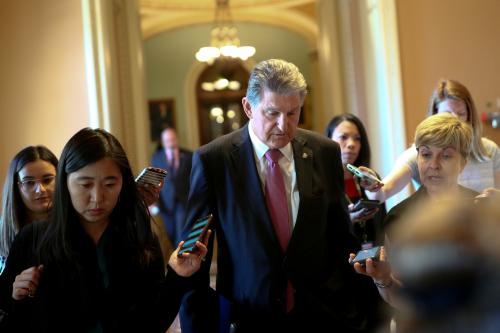
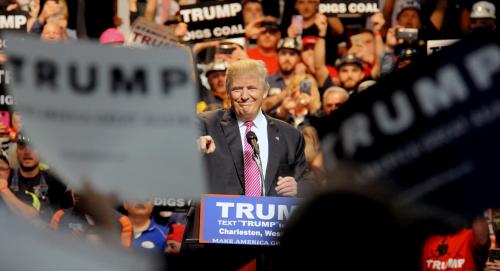
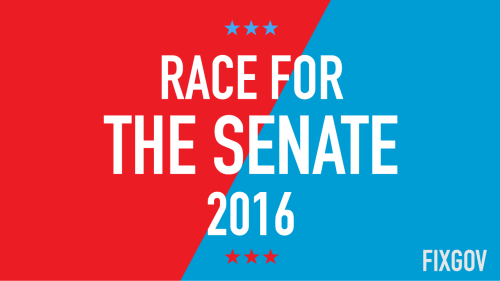
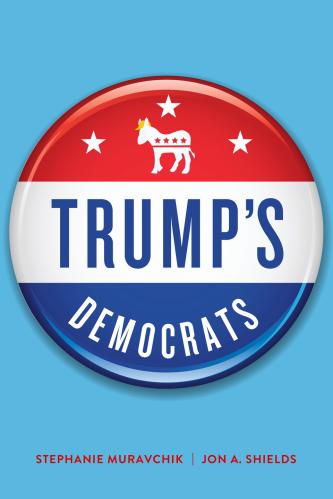


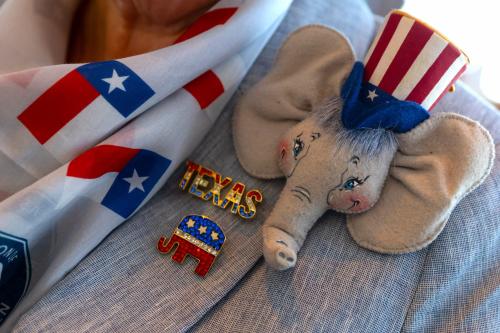
Commentary
Race for the Senate 2018: Key issues in West Virginia
October 23, 2018